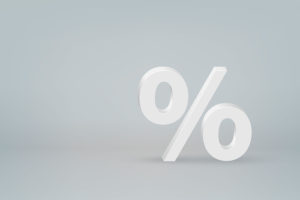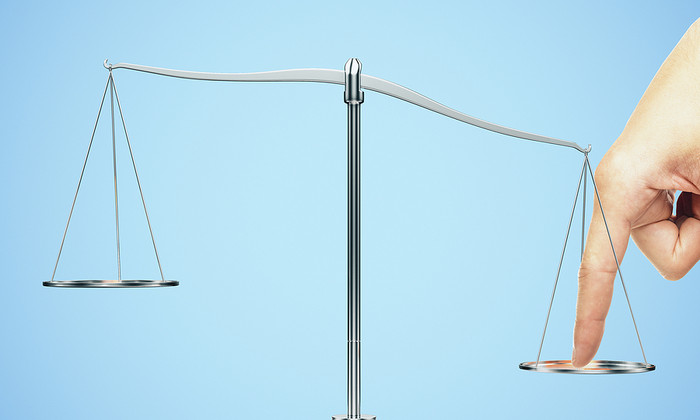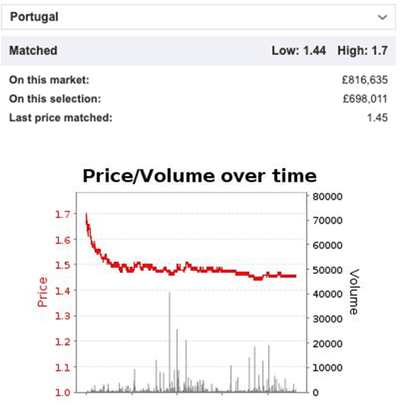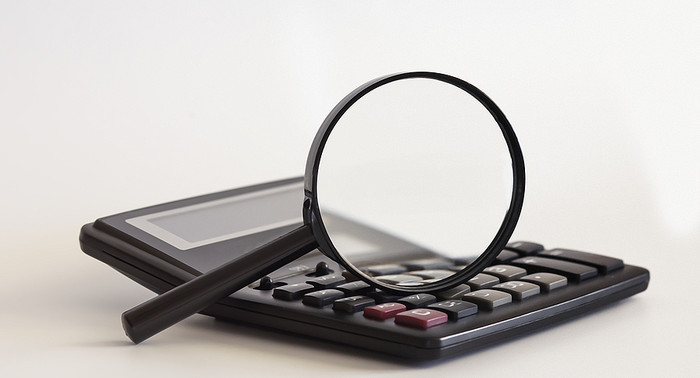 A phrase that has been around for years is “you never see a poor bookmaker” and for the most part it’s true. But, how do the bookmakers actually make their money?
A phrase that has been around for years is “you never see a poor bookmaker” and for the most part it’s true. But, how do the bookmakers actually make their money?
It’s an area that many people aren’t aware of and to be successful at betting you need to understand how the person you want to take money off (the bookmaker) is going about trying to earn their money.
A common misconception is that the bookmaker simply makes their money from the volume of bets that they receive. They simply ‘hope’ that more people lose their bets and in return, they will make some money from that. It’s actually completely wrong and there is a lot more to it than that.
Vig / Overround / Juice

These terms are essentially what the bookmaker charges you with every bet. Whilst you don’t actually see it in terms of the bet that you place, the odds that you are receiving wont be a true reflection on the likely outcome of that bet.
Let’s run through a simply example of a coin toss to help explain it some more.
A coin toss can only have two outcomes; heads or tails. This means that statically speaking it’s a 50/50 chance on whether one or the other will land. If you were flip the coin a million times the likelihood will be that you get an almost exact split of 50/50 for each result (this may differ slightly due to variance and sample size, but you get the point).
If you were to place this bet on a bookmaker then there is no way that you would ever get even money on the outcome. If you think about, what would be the point for the bookmaker as they couldn’t make any money from this.
You will likely see a slight discrepancy in the price and instead of getting the true odds of 2.00 (evens), you will likely get somewhere in region of 1.91 (10/11) for either outcome.
Let’s say that £1,000 was wagered on a series of coin tosses with £500 for each of the even money bets of heads and tails. Call it £10 per bet and 50 bets on each outcome, with half of those winners and half losers. This would mean the bookmaker collects, but also pays out £1,000.
| Heads | Tails | Total | |
|---|---|---|---|
| Amount Wagered | £500.00 | £500.00 | £1000.00 |
| Odds | 2.00 (Evs) | 2.00 (Evs) | 2.00 (Evs) |
| Winning Stakes | £250.00 | £250.00 | £500.00 |
| Payout | £500.00 | £500.00 | £1000.00 |
| Bookmaker Profit | £0.00 | £0.00 | £0.00 |
If we change the odds to 1.91 with the same number of bets and the same stake, then the bookmaker would again take in £1,000 with half of the money wagered winning and half losing. But, as the odds have now reduced for each bet, the most they would pay out would be £955 (£500 x 1.91). This then means that the bookmaker would make £45 on the bet or 4.5% vig (short for vigorish) on all results.
| Heads | Tails | Total | |
|---|---|---|---|
| Amount Wagered | £500 | £500 | £1000 |
| Odds | 1.91 (10/11) | 1.91 (10/11) | 1.91 (10/11) |
| Winning Stakes | £250 | £250 | £500 |
| Payout | £477.50 | £477.50 | £955.00 |
| Bookmaker Profit | £22.50 | £22.50 | £45 |
Bookmaker’s Profit on a Win-Draw-Win Football Market

A lot of you reading this will likely be football fans, so this seemed an obvious market to use as an example, but you can apply this to pretty much any betting market that you choose, with a few minor tweaks.
The 1×2 market is essentially 3 results; home win, draw and away win. Let’s say that the home team are priced at 2.60 to win, the draw at 3.20 and the away win at 2.80. Let’s say that the bookmaker was looking to pay out £10,000 on for each winning scenario.
- On the home team they will need to take in £3,846.12 (£10,000/2.60)
- On the draw they will need to take in £3,125 (£10,000/3.20)
- On the away win they would need to take in £3571.42 (£10,000/2.80)
The total amount that they would take in from this bet would be £10,542.54. As they would only then pay out £10,000 in total, this gives the bookmaker a profit of £542.54 however the match finishes.
Changing Odds

As you can see from above, the bookmaker initial price would have to be exactly right and in sync with the amount of money that came in for each bet.
As more money comes in for each bet, it will start to outweigh other prices. This means that bookmaker will need to adjust their bets accordingly to continue to make sure that they are running a profitable book.
 There is no written rule about how much the odds are going to vary between prices. Some sports have bigger changes than others and the majority of this comes from the weight of bets than anything that can influence the game or race.
There is no written rule about how much the odds are going to vary between prices. Some sports have bigger changes than others and the majority of this comes from the weight of bets than anything that can influence the game or race.
We’ve got a pretty good example of how they can change, and we’ve highlighted this here.
The game is that of Portugal v Hungary in Euro 2020. Portugal are big favourites to win, but there was some doubt whether their star player, Cristiano Ronaldo, would be starting or not.
As you can see, the price started at 1.7 and as news filtered through of Ronaldo’s involvement, dropped to 1.44. We realise that this is on the exchanges, but it works with the same principle.
The odds may be small, but there is a 15% change here and we are still some time away from kick off, meaning that this price is only going to drop further.
How Can I Calculate the Overround?
![]() It’s actually very simple to see the bookmaker’s margin on any given market. The is called the overround.
It’s actually very simple to see the bookmaker’s margin on any given market. The is called the overround.
What this does is allow you to mathematically work out the exact percentage or vig that the bookmaker is charging for earnings on each bet.
To work it out you simply need to divide all odds for that market by 1, add them together and then convert it into a percentage.
Let’s use the example of the football match above to work out the overround for this bet.
- Home team odds 2.60 = 1/2.60 = 0.384
- Draw odds 3.20 = 1/3.20 = 0.312
- Away team odds 2.80 = 1/2.80 = 0.357
- Added together you get = 1.053. As a percentage this would work out as 105.3%, with an overround of 5.3% (number over 100%).
Can I Use the Overround to My Advantage?

Hopefully this article will enlighten on you on how exactly the bookmaker makes money and more importantly, how they price up their books. It may be a little shocking for some to see that over a massive sample the bookmakers cant lose money. But, on individual bets, they can, which is where the punter can still make their money.
What you need to bear in mind though is that all prices start with a human input as to how the game might take place. There are no absolutes in sport, and whilst the bookmaker will have some of the best analysts and statisticians in the world on the case, it’s essentially their opinion.
You can apply the knowledge that you have learned in this article to see where gaps or mistakes in a bookmakers over-price could come into play. Whilst this rarely does happen, you will be able to target markets where the numbers are lower and in turn, stand you in better stead to get one over on the bookmakers.
